Let's be honest, we all love a good hard-boiled egg. They're a classic snack, a perfect addition to a salad, and a versatile ingredient for all sorts of recipes. But achieving that perfect hard-boiled egg, with a creamy yolk and a firm white, can be a real challenge. You've probably encountered those rubbery, overcooked nightmares or those watery, runny disasters. Well, worry no more, because I'm about to share my secrets to mastering the art of the perfect hard-boiled egg. Get ready for a cracking good read!
(Part 1) Unraveling the Science Behind a Perfect Egg
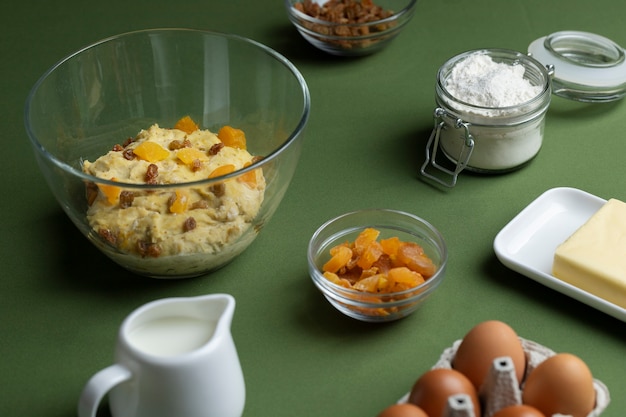
Before we dive into the actual cooking process, let's take a moment to understand what's going on inside that egg shell. This isn't just about throwing some eggs in a pot of boiling water, it's about knowing the science behind it. You see, the egg white, or albumen, is mostly water and protein. As heat is applied, the proteins unravel and intertwine, forming those firm, white strands. The yolk, on the other hand, is richer in fat and contains less protein. It sets up at a lower temperature, which is why it typically solidifies first.
The Crucial Role of Time
The cooking time is the key factor in determining the texture of your hard-boiled egg. Cook it too long, and the yolk will become hard and dry, losing its creamy texture. Cook it too little, and the yolk will be runny, and the white will be soft and jiggly.
The Perfect Timing Chart
Here's a handy chart I've created that outlines the ideal cooking times for different levels of doneness. This is a starting point, and you might need to adjust based on the size of your eggs and the altitude you live at. But it's a great place to begin:
| Doneness | Cooking Time (Minutes) | Yolk Texture | White Texture |
|---|---|---|---|
| Soft-boiled | 3-4 | Very runny | Slightly firm |
| Medium-boiled | 6-7 | Slightly runny | Firm |
| Hard-boiled | 8-10 | Firm but creamy | Very firm |
| Very hard-boiled | 12 | Hard and rubbery | Very firm and rubbery |
Remember, this is a guide. The best way to truly know your eggs is to experiment and discover what works best for you.
(Part 2) Mastering the Art of Boiling
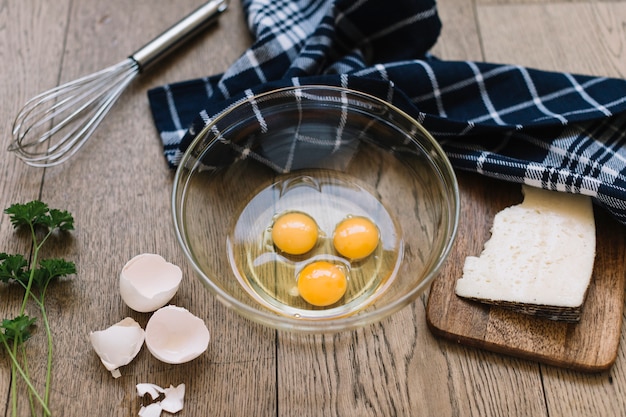
Now, let's get our hands dirty, shall we? Boiling hard-boiled eggs seems simple enough, but there's a bit more to it than meets the eye. Here's a step-by-step guide to ensure your eggs are perfectly cooked, every single time.
1. Choosing the Right Pot
Start with a pot that's large enough to hold your eggs comfortably with some extra space to spare. A cramped pot can cause the eggs to bump around and crack during cooking. You want them to have some room to move around gently.
2. Starting with Cold Water
This is a crucial step, folks! Start with cold water. Adding the eggs to cold water allows them to heat up gradually, reducing the risk of cracking. Place your eggs in the pot and fill it with cold water, making sure the water level is about an inch above the eggs.
3. Achieving a Rolling Boil
Once the eggs are submerged in cold water, place the pot on the stove and crank up the heat. You want to bring the water to a vigorous, rolling boil. You'll know it's ready when the water is bubbling rapidly and with plenty of force.
4. Reducing the Heat to a Simmer
Now, here's the secret. As soon as the water reaches a rolling boil, immediately reduce the heat to a gentle simmer. Keep the water bubbling gently, but not so aggressively that it's splashing everywhere. This even cooking process ensures the whites set properly and prevents the eggs from cracking.
5. Timing is Everything
This is where your handy chart comes in. Once your water is simmering, start your timer based on the desired level of doneness you want for your eggs.
(Part 3) Cooling Down for the Perfect Peel
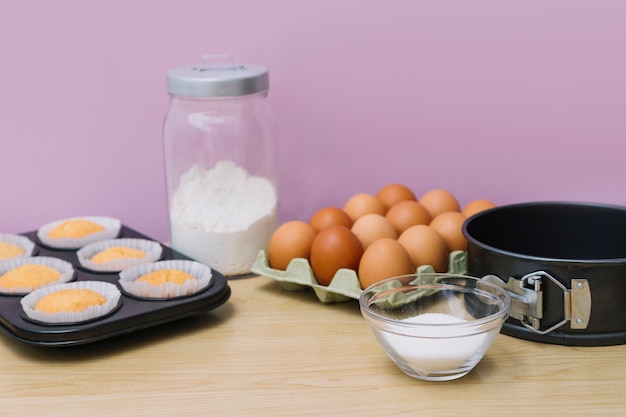
Alright, the timer has gone off! Your eggs are cooked, but don't rush to grab them just yet. The cooling process is just as important as the cooking process.
1. The ice bath Method
Immediately after draining the hot water, plunge the eggs into an ice bath. Prepare a large bowl filled with cold water and ice cubes. Carefully transfer the eggs from the pot to the ice bath. Let them sit for about 10 minutes, or until they're completely cool.
2. Why an Ice Bath is Essential
Don't skip this step! The ice bath stops the cooking process and makes the eggs much easier to peel. The shock of cold water tightens the egg white and makes it easier to separate the shell. Trust me, you'll thank me later.
(Part 4) The Art of Peeling: A Gentle Approach
Now, the moment of truth! Peeling a hard-boiled egg can be a frustrating experience if done incorrectly. But with the right technique, it can be a breeze.
1. A Gentle Tap
Start by giving the egg a gentle tap on a flat surface. This creates a small crack, making it easier to peel the shell.
2. Rolling for Cracks
Roll the egg between your palms to crack the shell further. This helps loosen the shell from the egg white.
3. Starting at the Wide End
Begin peeling from the wider end of the egg. This is usually the easiest point to start, as the shell is thinner and more likely to come off easily.
4. Avoid Forcing the Shell
Be patient and gentle! Don't try to force the shell off. This will result in bits of shell clinging to the egg white.
5. Peeling Under Running Water
If you find yourself struggling, try peeling the egg under running cold water. The water helps loosen the shell from the white.
(Part 5) A Checklist for Perfect Hard-Boiled Eggs
Okay, let's recap everything we've covered. Here's a simple checklist to ensure your hard-boiled eggs are absolutely perfect:
- Use fresh eggs.
- Start with cold water.
- Bring the water to a rolling boil, then reduce to a simmer.
- Cook for the appropriate amount of time based on your desired doneness.
- Immediately plunge the eggs into an ice bath.
- Peel the eggs gently, starting at the wide end.
Following these steps consistently will lead you to consistently perfect hard-boiled eggs.
(Part 6) Beyond the Basics: Adding Flavor and Variety
You've now mastered the basic art of hard-boiling eggs. But let's talk about those little extras that can take your egg game to a whole new level.
1. Adding Flavor with Spices
Sure, you can enjoy a plain hard-boiled egg, but why not add some flavor? Here are a few ideas:
- Salt and Pepper: A classic combination that enhances the natural flavor of the egg.
- Garlic Powder: A subtle, savory kick that pairs well with deviled eggs.
- Paprika: A touch of color and a mild smoky flavor, perfect for deviled eggs or a sprinkle on top.
- Curry Powder: A flavorful twist for a spicy snack or a delicious addition to egg salad.
2. Experimenting with Different Techniques
There are other methods for cooking hard-boiled eggs. Some people swear by the pressure cooker method, while others prefer a slow-cooker approach. The beauty is finding what works best for you and your kitchen.
3. Making the Most of the Yolks
Hard-boiled eggs are so much more than just a snack. Get creative with the yolks! Make deviled eggs, creamy egg salad sandwiches, or add them to a salad for a protein boost and a creamy texture.
(Part 7) Keeping Your Eggs Fresh and Delicious
Once you've got those perfect hard-boiled eggs, you want to make sure they stay that way, right? Here's how to store them properly.
1. Refrigerate Immediately
Hard-boiled eggs should be refrigerated as soon as possible after cooking. This prevents the yolk from drying out and the white from becoming rubbery.
2. Store in an Airtight Container
Store your eggs in an airtight container to keep them fresh and prevent them from absorbing any unwanted flavors from the fridge.
3. Keep an Eye on the Expiration Date
Even though they're cooked, hard-boiled eggs still have an expiration date. It's best to eat them within a week or two.
(Part 8) Common Questions and Answers
You've got questions, I've got answers! Let's tackle some frequently asked questions about hard-boiled eggs.
1. Why Do My Eggs Crack?
Eggs can crack for a few reasons. They might be too old, making the shell brittle. They could be cracked even before you start cooking. Ensure you start with fresh eggs and handle them gently. Also, ensure the water is cold when you add the eggs and bring them to a gentle boil.
2. What if My Yolk is Green?
A green ring around the yolk is a sign of overcooking. It's a harmless reaction caused by the iron in the yolk and the sulfur in the white, which bond together when exposed to excessive heat. While it's perfectly safe to eat, it doesn't look as appealing.
3. How Can I Peel Eggs Easily?
The key is to start with fresh eggs and ensure they're properly cooled in an ice bath. This shrinks the white, making it easier to peel.
4. Can I Use Brown Eggs or White Eggs?
The color of the eggs doesn't affect the cooking process or the texture. Use whatever you prefer!
5. Are Hard-Boiled Eggs Good for You?
Absolutely! Hard-boiled eggs are packed with protein, vitamins, and minerals. They're a great source of choline, which is essential for brain health.
(Part 9) The Final Word: Mastering the Art of the Egg
There you have it, folks! The ultimate guide to hard-boiled eggs. I hope you've found it helpful and informative. Now go forth and conquer those eggs! With a little practice, you'll be whipping up perfect hard-boiled eggs in no time, every single time.
Everyone is watching

How to Cook Frozen Lobster Tails Perfectly: A Step-by-Step Guide
RecipesLobster. Just the word conjures up images of lavish meals, special occasions, and a taste of luxury. But let's...

Pigs in a Blanket Cooking Time: How Long to Bake for Perfect Results
RecipesAh, pigs in a blanket. Just the name conjures up images of those delightful little parcels of crispy pastry en...

Pork Fillet Cooking Time: How Long to Cook It Perfectly
RecipesPork fillet, or tenderloin as it's sometimes called, is a real favourite in our house. It's so versatile, and...
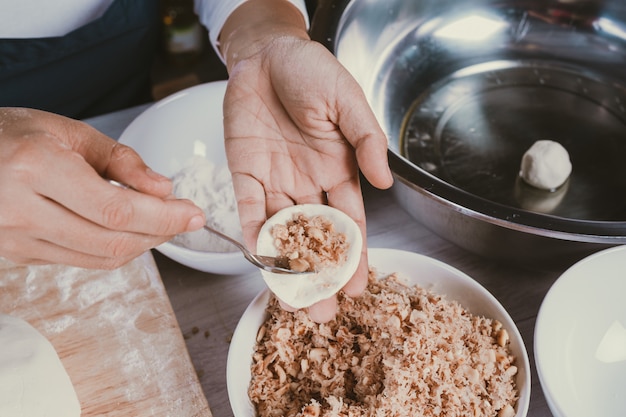
The Ultimate Guide to Tender, Juicy Pulled Pork
RecipesRight, let's talk pulled pork. It's one of those dishes that just screams "comfort food," doesn't it? I mean...
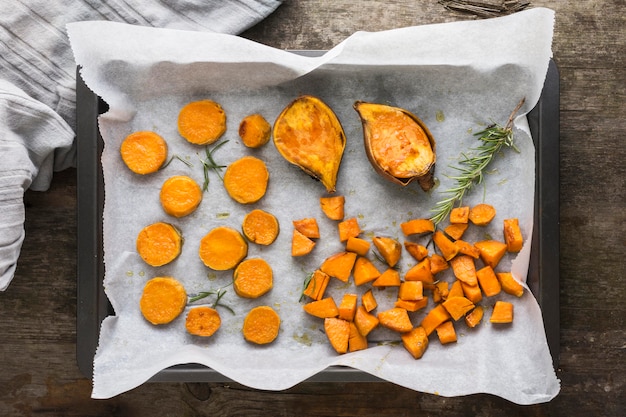
The Ultimate Guide to Cooking Sweet Potatoes: From Roasting to Mashing
RecipesSweet potatoes. Just the name conjures up images of warm, comforting dishes, bursts of vibrant color, and a to...
